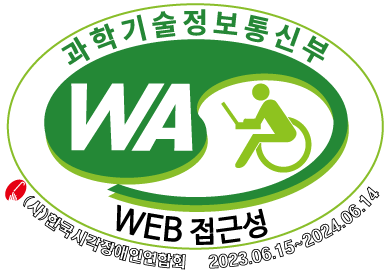Publications
What's New
The Academy of Korean Studies published the 2022 Spring Issue of the Korea Journal focusing on the separation of the two Koreas and the Cold War
- Department International Cooperation and PR Team
- Registration Date 2022-06-28
- views 364
The Academy of Korean Studies published the 2022 Spring Issue of the Korea Journal focusing on the separation of the two Koreas and the Cold War
- ◇ The 2022 Spring Issue of the Korea Journal was recently published. The Korea Journal is the oldest English-language Korean Studies journal published in South Korea.
- ◇ The issue contains a total of ten articles. Topics include the 1967 Incident at Guard Post Ouellette; the migration of female refugees and their results of their labor; and the history of the separation of Korea focusing on landmark events including author Hwang Sok-yong’s visit to North Korea in 1989, refugees, and unauthorized visits to North Korea.
- ◇ The journal can be freely accessed on the AKS website.

Photo. The 2022 Spring Issue of the Korea Journal (Source: The Academy of Korean Studies)
□ The Academy of Korean Studies (President Ahn Byung Woo) announced the publication of the 2022 Spring Issue of the Korea Journal. This issue sheds light on the past, present, and future of Korea as a divided nation.
The Korea Journal is the first English-language Korean Studies journal published in South Korea. Its inaugural issue was released in September 1961. A quarterly journal, it publishes articles on recent research across the areas covered by Korean Studies. The journal has been indexed in the reputable Arts and Humanities Citation Index (A&HCI) since 2001.
□ In the face of the unpredictable geopolitical conditions on the Korean Peninsula exacerbated by North Korea’s continued engagement in missile launches, the AKS intended to examine the implications and effects of the division of Korea, refugees, and those crossing the border to go to North Korea in order to identify possible ways to eliminate the barriers between the two Koreas and heal the scars of their separation.
- □ In ‘The Frontlines of Freedom’: The 1967 Incident at Guard Post Ouellette and the Military Armistice Commission, Professor Monica Hahn of Seoul National University argues that the demilitarized zone is not simply a border between the two Koreas, but also a border between North Korea and the United States and a border between communist and capitalist states. She explains the process of the militarization of the DMZ through the lens of institutions and historical backgrounds.
- ○ Professor Hahn uses the 1967 Incident at Guard Post Ouellette as an example to highlight the roles and limitations of the agencies regulating the armistice, as revealed in the Armistice Agreement. She concludes that the military conflicts in the DMZ that occurred in the mid- to late 1960s were one of the consequences of the Vietnam War.
- The 1967 Incident at Guard Post Ouellette was a military conflict that occurred on April 5, 1967 between North Korea and the UN (the US). Guard Post Oullette started firing at three North Korean soldiers who had crossed the Military Demarcation Line. The gunfire lasted for about 50 minutes and resulted in five deaths and one injury.
- □ Gendered Migration and the Labor of Female Refugees before and after the Korean War by Assistant Professor Kim A-Ram of Hallym University looks into the migration and labor of female refugees from 1945 (the year of independence from Japan) to 1950 (the outbreak of the Korean War) with a particular focus on women who migrated to Jangheung in Jeollanam-do and to Jeju.
- ○ According to the author, female refugees settled in rural villages that had emptied out as the original inhabitants left in favor of cities and other jobs. The author argues that these women’s labor contributed to the rebuilding of the country after the war.
- □In The Border of Division and Politics of Encounter: A Study of Hwang Sok-yong’s Visit to North Korea in the 1980s, Assistant Professor Lim Yu-kyung of Korea National Open University reviews the background of Hwang Sok-yong’s unauthorized visit to North Korea in 1989, a point when the Korean Peninsula was a battleground between Cold War and post-Cold War forces, as well as the literary value and politics of his travelogue on his visit to North Korea.
- ○ Hwang called his unauthorized act of crossing the border “a visit” and his travel journal contributed to changing the way South Koreans perceived the cultural images of North Korea and how they pictured North Koreans.
- ○ Professor Lim argues that Hwang’s bold actions can be viewed as a kind of “counter-hegemonic practice” in that they disrupted the discourse system of power.
- □ Last, Living on the Border? Human Rights and the Selection Process in the Forced Migration of North Korean Defectors by Associate Professor Song Young-hoon of Kangwon National University observes the multi-faceted status of overseas North Korean defectors as Koreans, refugees, and migrants and discusses ways to promote their human rights.
- □ The Korea Journal addresses timely issues in contemporary South Korean society in each issue.
- □ The full text of the 2022 Spring Issue can be accessed on the AKS website (Go to Publications and then to the Korea Journal on www.aks.ac.kr).
(Source)
https://www.aks.ac.kr/cop/bbs/selectBoardArticle.do?nttId=317963&bbsId=BBSMSTR_000000000046
-
The future of the public domain and open source in the era of AIICPR Team 2023-10-23
-
The Seoul Metropolitan Library receives the IFLA Green Library AwardICPR Team 2023-10-20
-
Efforts to eradicate the illegal distribution of Korean contentICPR Team 2023-10-20
-
The 60th National Library Congress heldICPR Team 2023-10-20
-
Five exhibitions and performance events to be launched to share the charms of Korean culture with the world, starting with the Hangeul Experiment ProjectICPR Team 2023-05-22

